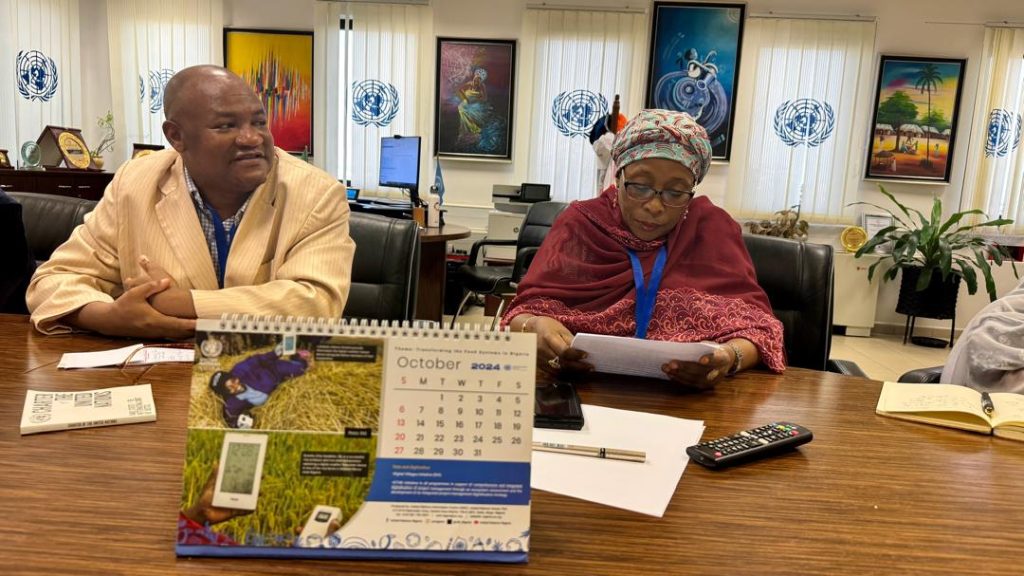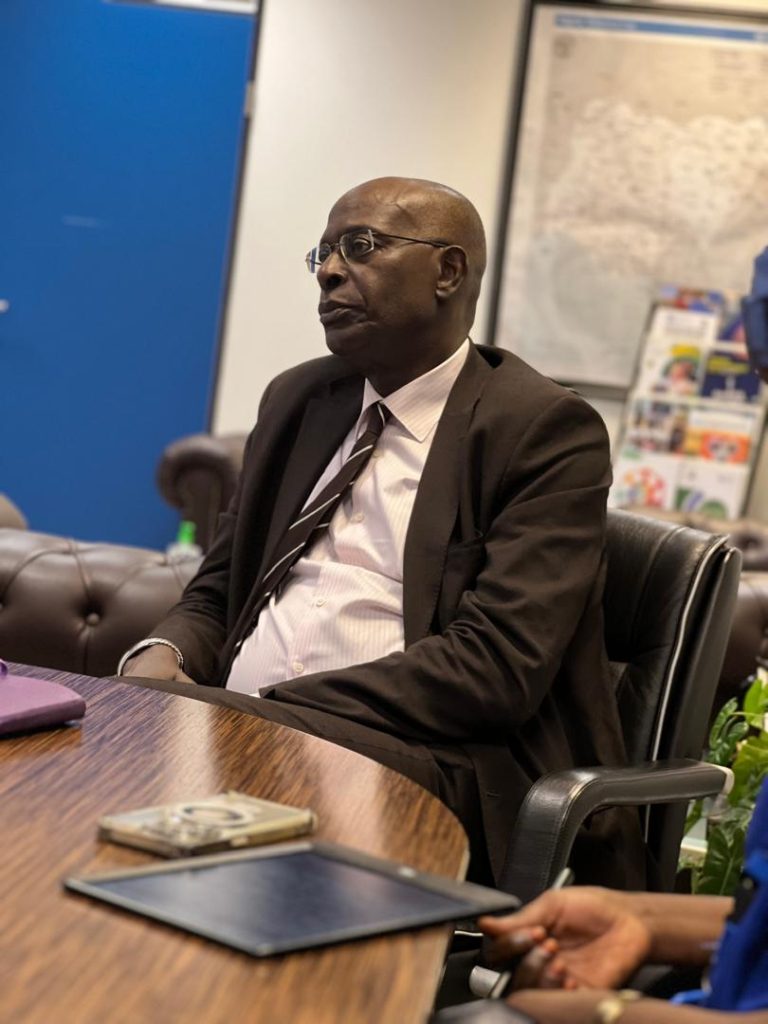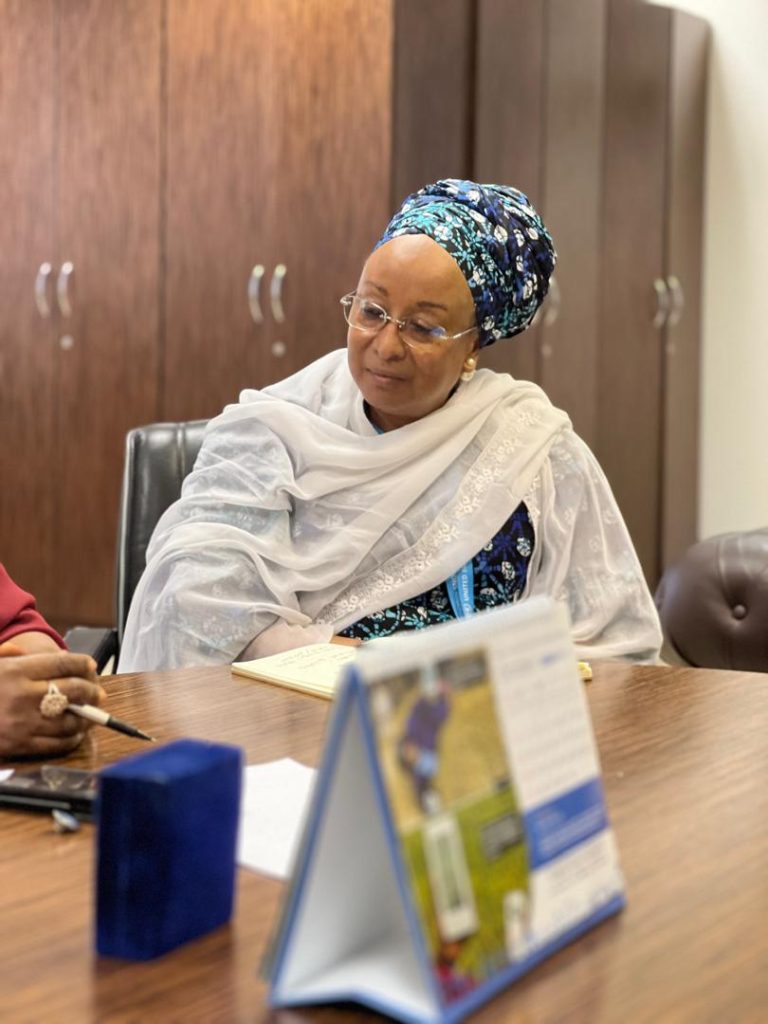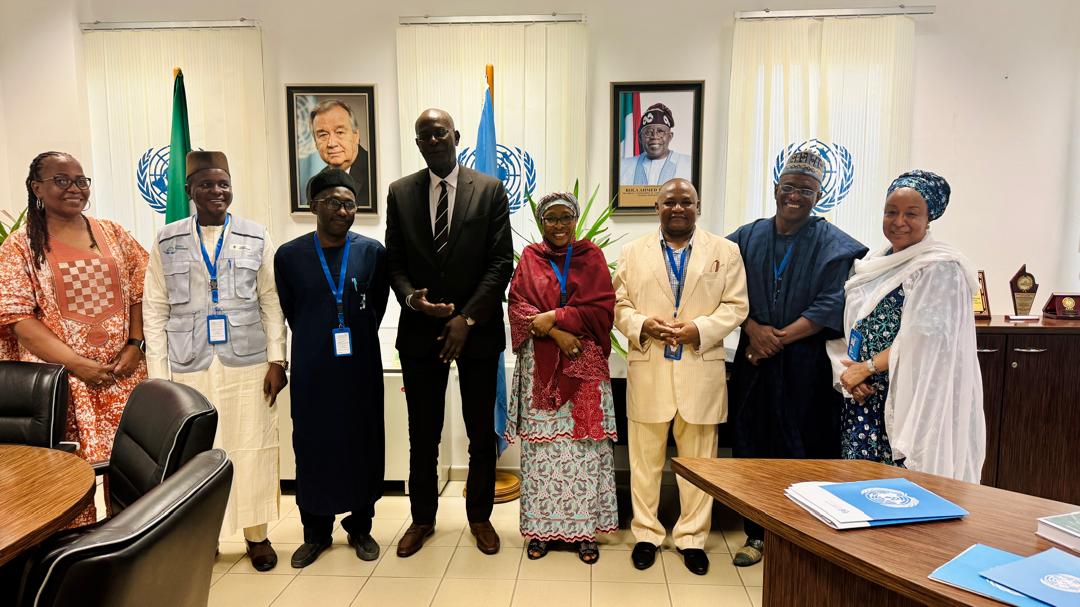By Muhammad Amaan
A delegation from the Kano State Ministry of Humanitarian Affairs and Poverty Alleviation has visited the United Nations office at the UN House in Abuja, to explore strategic partnership and collaborations to address humanitarian challenges in the state.
The visit to the UN House led by the Commissioner, Hajiya Amina Abdullahi Sani alongside the Ministry’s Technical Adviser, Dr Aminu Magashi Garba and relevant ministry directors.
During the visit, the commissioner and her team held a successful meeting with the United Nations team led by the UN Resident and Humanitarian Coordinator, Mohamed M. Malick Fall, who was joined by Maryam Uwais, UN Consultant, and Thembekile Dube-Ncube, Acting Head of the Resident Coordinator’s Office (RCO), respectively.
The meeting focused on exploring strategic partnerships and collaborations between the ministry and the UN to address the humanitarian challenges and poverty reduction plans in Kano State.

Discussions centred on aligning the state’s initiatives with the UN’s frameworks to effectively tackle poverty alleviation, social protection, severe malnutrition, food insecurity, and humanitarian interventions.
Both parties emphasised the importance of strengthening institutional support and leveraging resources to enhance the impact of ongoing interventions.
The commissioner in her speech, told the UN Resident Coordinator that Kano State is the most populous state in Nigeria and experiencing challenges and effects of climate change, flooding, youth’s restiveness which affect healthcare delivery, education, displacement of people from homes and environmental sustainability.
She stated that Kano bordered by some northwestern states experiencing banditry, has worsen humanitarian crises and risk influx of people to the state creating further population problems and humanitarian crises.

“The Ministry is currently identifying and prioritizing humanitarian response needs, and to also develop and implement a 5-year strategic plan, annual operational plans, establish an inter-ministerial coordination committee for humanitarian response, convene stakeholder’s forum, set up the Kano State Humanitarian Response Trust Fund and mobilize resources, including funds, personnel, equipment and material for an effective humanitarian response,” Hajiya Amina told the UN team.
The commissioner sought the United Nations to support Kano state ministry of humanitarian affairs and poverty alleviation to develop policies and guidelines on humanitarian response as well as disaster management and control.
She also sought support for the ministry to raise critical resources and funding to mitigate humanitarian crises such as flooding, climate change, displaced people (collapsed houses and bridges, influx of immigrants from Katsina, Zamfara, Yobe, Borno, etc.), food insecurity, insecurity, and out-of-school children/almajiri.
“This includes addressing the recent repatriation of destitute and street beggars from Abuja, with the deadline of October 29, 2024, as many of these individuals are expected to migrate to Kano. This situation is particularly pressing in regard to the rising number of out-of-school children and almajiri, highlighting the need for increased support and intervention.

“Support the ministry to invest in research and data collection which are critical in informing a rapid, effective and principled humanitarian response. Support the ministry to strengthen coordination across various ministries and agencies in Kano that will promote coordinated humanitarian response in addressing vulnerabilities of the people of Kano and northern Nigeria,” she added.
Hajiya Amina stated that the Kano state would wish to explore opportunities via the United Nations Sustainable Development Cooperation Framework (UNSDCF) 2023-2027 to leverage support to address its development and humanitarian challenges including coordinating with northern states.
The other support sought by the commissioner includes; “enhance the capacity of the ministry for strategic analysis and planning toward effective humanitarian response.
“Support the ministry and its stakeholders with training and capacity building for crisis management and preparedness response, external/internal communications and advocacy, respect to human rights and development, and coordinated resource mobilisation and fund management.”




